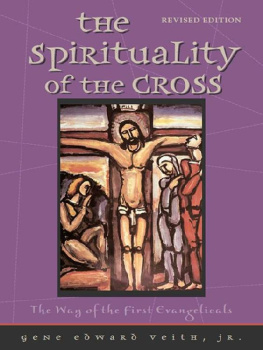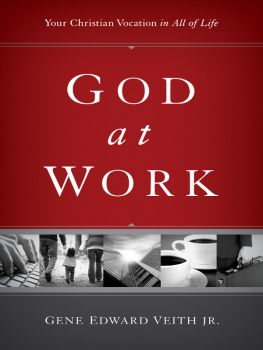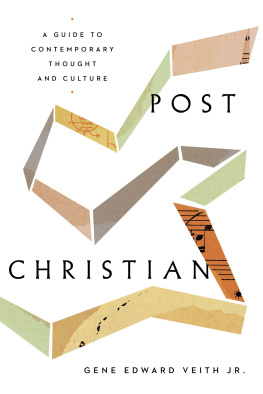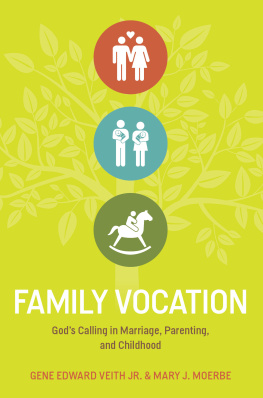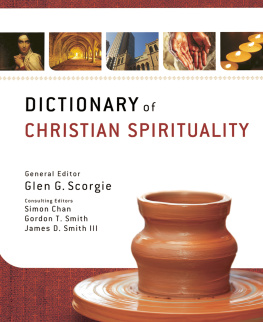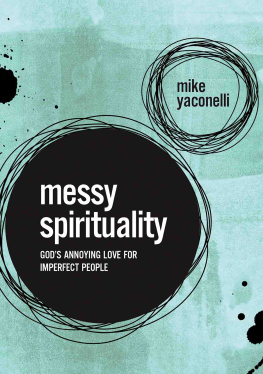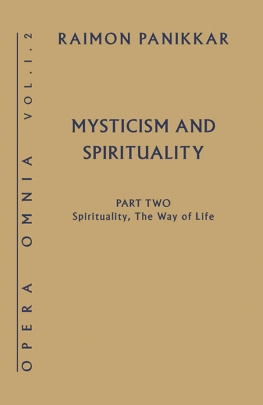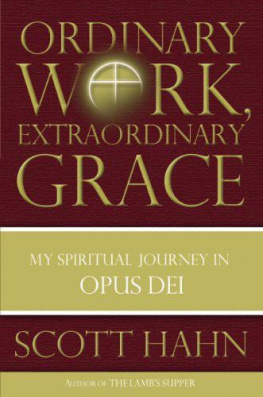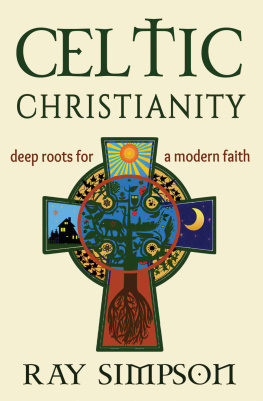
This edition copyright 2010 Concordia Publishing House
3558 S. Jefferson Avenue, St. Louis, MO 63118-3968
1-800-325-3040 www.cph.org
First edition copyright 1999 Concordia Publishing House
All rights reserved. No part of this publication may be reproduced, stored in a retrieval system, or transmitted, in any form or by any means, electronic, mechanical, photocopying, recording, or otherwise, without the prior written permission of Concordia Publishing House.
Unless otherwise indicated, Scripture quotations are from the ESV Bible (The Holy Bible, English Standard Version), copyright 2001 by Crossway Bibles, a publishing ministry of Good News Publishers. Used by permission. All rights reserved.
Scripture quotations marked NIV are taken from the H OLY B IBLE , N EW I NTERNATIONAL V ERSION . NIV. Copyright 1973, 1978, 1984 by International Bible Society. Used by permission of Zondervan. All rights reserved.
Quotations from the Lutheran Confessions in this publication are from Concordia: The Lutheran Confessions, second edition; edited by Paul McCain et al., copyright 2006 Concordia Publishing House. All rights reserved.
Manufactured in the United States of America

Library of Congress Cataloging-in-Publication Data
Veith, Gene Edward, 1951
The spirituality of the cross : the way of the first evangelicals / Gene Edward Veith, Jr.
p. cm.
Includes bibliographical references.
ISBN 0-7586-1303-2
1. SpiritualityLutheran Church. 2. Lutheran ChurchDoctrines.
I. Title.
BX8065.2.V45 1999
230.41dc 98-54166
1 2 3 4 5 6 7 8 9 10 19 18 17 16 15 14 13 12 11 10

To Pastor Don Kirchhoff,
who brought us in
CONTENTS
PREFACE
THE NEW EDITION
This book explains a Christian tradition that is rich, historic, and particularly relevant today. Yet hardly anyone outside of Lutheran circlesand sometimes not even within themis aware of it. But in a time when Christianity has become confused with moralism, politics, and what Martin Luther called the spirituality of glory, the spirituality of the cross comes as a liberating, paradigm-shifting alternative.
Many peoplefrom both varied religious backgrounds and from no background at allhave found it so. I am constantly amazed as I hear from or about people whose lives were changed by this book. I find that strangely humbling, an example of vocation, in which God works through ordinary human beings doing ordinary tasks. I was not trying to change anyones life when I undertook the writing of this little book, but if it helps people understand who Jesus is, what He accomplished for us, and how He is still present in the world, I have to be glad. If this book helps people know the freedom that comes from Jesus, if it helps people know that Jesus bears their sufferings with them, I can only be thankful.
I wrote the first edition of this book at the end of the last century. Since then, I have traveled even furtheralong this way of the first evangelicals and have a few more things I would like to say about ithence, this new edition.
I have studied some of these issuesespecially the theology of the cross and vocationin greater depth, and this new edition reflects that. I have also been involved with more churches that are part of the Lutheran tradition. Some of the characteristics that I discussed in the first edition held true for the churches I knew then but not necessarily all of them that I know now. What I said about pastors and congregations, I now know do not describe the practices in all Lutheran churches, which, for all of their unity in following the spirituality of the cross, nevertheless are free to exhibit quite a bit of diversity in their practice. There were other points that I explained unclearlyjudging from questions that have been asked meand so I am taking another stab at them.
I have also included more resources that I have found invaluable in living a life under the cross, resources that are an intrinsic part of this tradition. They include Luthers Catechism, the Book of Concord, the rite of Confession and Absolution, and the writings of someone I strangely said little about in the first editionthat theologian of the radical Gospel and of life under the cross, Martin Luther. So this new edition should be more complete, more accurate, and, I hope, even more helpful.
Since the first edition was written, I believe that this so-called Lutheran approach to Christianity is now more relevant than ever to our postmodern times. The theologies of glory fail, provoking scorn against Christianity rather than winning converts. Christianity has become confused with politics, power, and culture. The only Christianity many people know is oppressive and life-denying, a network of rules and moralisms that no one can fulfill. Religions of mere law soon degenerate into hypocrisy, having to do not so much with righteousness as with self-righteousness. Ironically, self-righteousness tends to bear fruit in a very unrighteous harshness, cruelty, and lack of love. In another irony, such law-heavy versions of Christianity, far from attracting people to the Christian faith, instead provoke rebellion against it. To many people, Christianity is dishonest, fake, with nothing to say to the real human condition and to the joys and sufferings of everyday life. But, as Luther himself said, in comparing his understanding of Christianity to others that were current even in his day, We have a different spirit.
People today have become cynical, and understandably so. Postmodernist thinkers go so far as to say that all religions, ideologies, and cultural institutions are nothing more than constructions designed to impose power over other people. These metanarrativesstories that purport to account for all of realityare really all about power. But in response, an interesting apologetic for Christianity has arisen. There is one metanarrative that is not about power. It is about the abnegation of power, centering on a powerful God who emptied Himself to become a poverty-stricken, homeless baby in a manger and who was killed by torture as a criminal. And yet, strangely, this death redeems us, as we, too, give up our power and accept His free gift. This one metanarrative is not about power andso is not a human construction. The other metanarratives are constructions by corrupt human beings asserting their selfish will to power. But this one is so different, it must be true.
The problem is that many articulations of Christianity are about powerof institutions, of politics, of our own power to solve all of our problemswhich is why so many people today see them as missing the point. But the kind of spirituality that can bear up to the postmodernist critique and speak most profoundly to the contemporary spiritual condition is precisely the spirituality of the cross.
INTRODUCTION
THE FIRST EVANGELICALS
Many of us are searching for some kind of spiritual life, even though we are not always clear about what that means. We yearn for a sense of transcendence, and yet we always come crashing down to earth. The various mysticisms make grandiose promises of enlightenment and spiritual empowerment, but there is no living happily ever after. Mundane life intrudes. Work, family pressures, practical responsibilities, hurting, and failures all have a way of breaking the spiritual mood.

